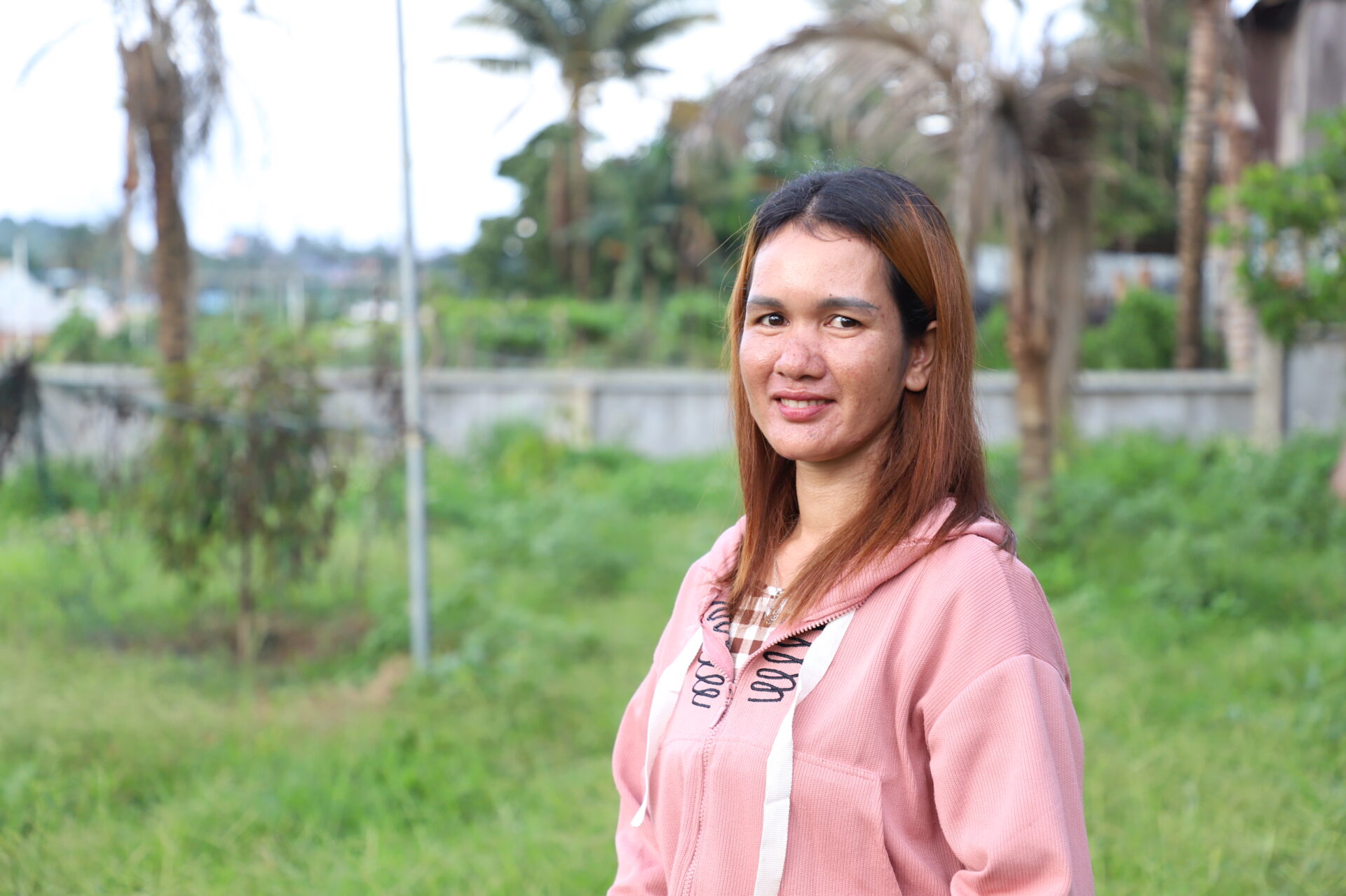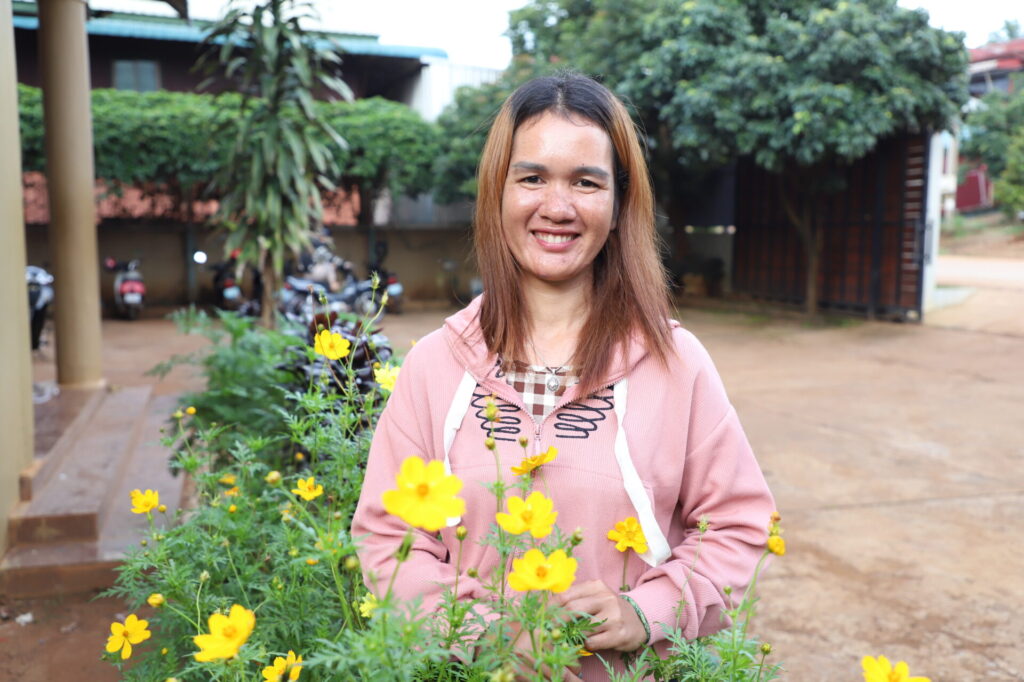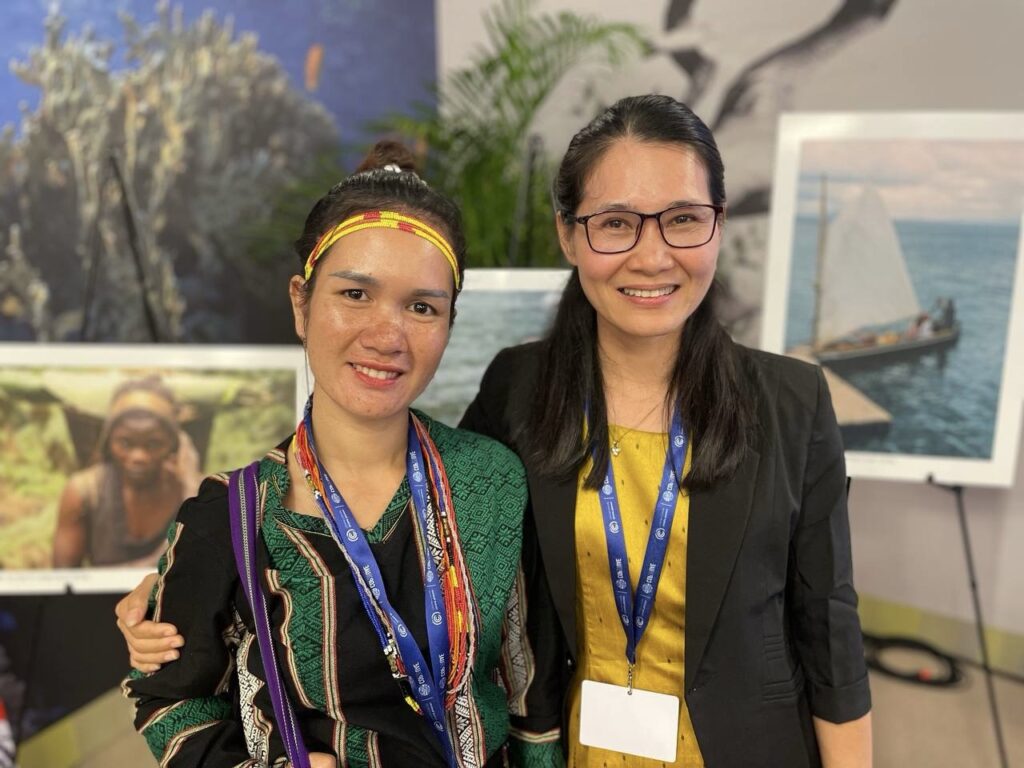
As we celebrate International Day of the World’s Indigenous Peoples, we honor the voices and stories of Indigenous communities worldwide.
This year, we highlight the story of Navy Koeung, an Indigenous Bunong woman from Cambodia’s Mondulkiri Province, where the Keo Seima Wildlife Sanctuary REDD+ Project is located. Navy’s journey is a testament to the resilience and strength of the Bunong people, their deep spiritual connection to the forest, and the transformative impact of the REDD+ project in their community.
The Bunong people are the largest Indigenous highland ethnic group in Cambodia, distinguished by their unique cultural traditions and animistic beliefs. For the Bunong, the forest is a sacred entity, inhabited by powerful spirits such as the revered Chok Marel. This profound spiritual bond has guided their sustainable management of the forest for generations, viewing it as both a home and a sacred place.
Navy Koeung, a 29-year-old mother of two, is a powerful advocate for her community. She reflects on her role, stating, “My daily routine involves working on land management projects, engaging with community members, and advocating for Iindigenous rights. I also spend time educating others about the importance of land titles”. Once a focal person for the REDD+ project, she has been pivotal in coordinating community meetings, working with communities to address local challenges, and liaising with the authorities and local NGOs. Her leadership extends to organizing community patrols. These patrols not only serve as an important safeguard for the environment but also provide economic opportunities. As Navy describes, “The community patrols help to guard against illegal logging and other threats, offering both financial support and a means of economic empowerment, especially for women who have traditionally been excluded from such roles.”

The project has also been instrumental in helping to preserve the Bunong’s sacred relationship with the forest. Through securing Indigenous Communal Land Titles (ICLTs) and providing essential legal and technical support, the project has partnered with the Bunong community to help manage their ancestral lands. Navy emphasizes, “Involving Indigenous communities in decision-making processes builds trust and ensures that projects are seen as genuine partnerships.” The project’s commitment to the principles of Free, Prior, and Informed Consent (FPIC) ensures this.
Alongside the preservation of Bunong culture, the REDD+ project plays a crucial role in protecting the region’s biodiversity. The Keo Seima Wildlife Sanctuary is one of Cambodia’s most ecologically rich areas, home to globally threatened species like the Asian elephant, black-shanked douc langur, and green peafowl. By preventing deforestation and promoting sustainable land management, the project contributes to conserving this biodiversity hotspot, protecting threatened species and maintaining the ecological balance that the Bunong people have long revered.
Navy’s dedication and passion for her community culminated in a historic moment at COP28, where she became the first Bunong community representative to speak at a major UN conference. Her presence highlighted the critical role of carbon finance in supporting Indigenous communities and conserving forests. Speaking to global leaders, Navy said, “Carbon finance uplifts my community and Indigenous communities worldwide, extending benefits to the entire world.”

Her words underscored the importance of financial mechanisms like REDD+ in addressing climate change and promoting sustainable development in partnership with Indigenous and local communities. Because the impact of the REDD+ project for communities is profound. Navy recalls the challenges of her childhood, from the lack of electricity and difficult transportation to limited access to sell produce. Today, the project helps alleviate these challenges. Navy observes, “the project has brought significant benefits, including improved infrastructure, enhanced livelihoods, and the protection of our cultural heritage”.
“The forest is a part of our identity, our livelihood, and our commitment to addressing climate change,” says Navy, reflecting on the action International Day of the World’s Indigenous Peoples must inspire, “please share this message with the world. It is important for everyone to understand the significance of supporting Indigenous voices and these community-led initiatives.”